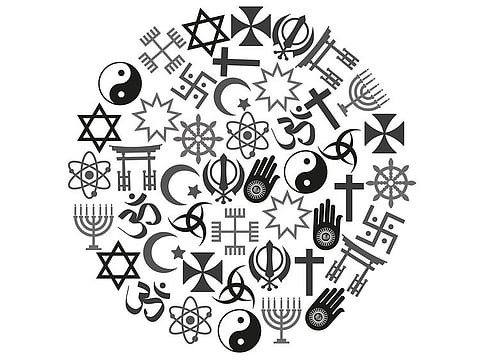Why interfaith dialogue matters in today's day and age
Our efforts should consider the maintenance of peace in human societies as a key pillar

A hundred and nineteen years ago this week a unique interfaith event was organised for the first time in Chicago, United States of America, from Sep. 11-16, 1893.
This event called the ‘Parliament of Religions’ witnessed participation from religious scholars from both the east and the west. The idea of this Parliament garnered such popularity with the public and the press that its daily participation rate ran into thousands.
This genesis of the Parliament of Religions was a significant achievement. It uniquely coincided with the time when industrialisation was gaining momentum. One might argue why the world would need a ‘dialogue on religions’ when industrialisation was on the threshold of taking the economy and human civilisation into an era of advancement.
However, the vanguards of the modern era posited that peace is a basic tenet of a civilised society. Therefore, the absence of peace would also become detrimental to a society’s progress. And history has shown us that their apprehensions were not unfounded.
An ensemble of paradoxes
The nineteenth century proved to be an ensemble of paradoxes. On one side were nations that were making efforts to strengthen their economic prowess, and on the other side were nations that were striving to gain freedom.
Nevertheless, the first Parliament left Chicago with a legacy and a forward-looking agenda for continuing dialogue and promulgating the spirit of cooperation and understanding between world faiths. But has this legacy been lived in word and spirit?
Also Read: Eid al-Fitr is the festival of mankind
Every year many interfaith events happen across the world. Some are deliberated by government organisations, while others are organised by civil societies. It cannot be denied that the idea of embracing the diversity of thought and engaging faiths in a peaceful dialogue has only grown in importance over the years.
Within society, the interreligious exchange develops through the scale of global interaction, creating sporadic opportunities for association and enhanced cognition of the struggle in overcoming religious conflict due to various geopolitical phenomena.
Although a select few organisations occasionally undertake interreligious dialogue in localised multi-religious areas in different parts of the world, the movement on a global scale is rather new.
Bridges of understanding
Interreligious discussion can take various forms, but it is a deliberate effort to develop bridges of understanding, respect, harmony, and friendship across religious communities.
To overcome preconceptions and past grievances, those engaging in discourse prefer to focus on the shared ground rather than divisive ideas.
However, despite leagues of interfaith dialogues, we are witnessing an increasing lack of peace in our society. So, the important question is why these dialogues fail to achieve the desired goals despite the organisational efforts. What is the cause of this failure? Is the ambition unrealistic, or is the follow-through insincere?
Today, a seemingly uneventful skirmish in a part of the world can lead to a chain reaction on all forms of media. But an interfaith conference organised and attended by the finest advocates and scholars of faith does not find the slightest mention!
Though governments worldwide are realising the importance of faith as a strong catalyst to maintain the world order, the practice of interfaith dialogue still lacks priority, contrary to economic activity.
A gathering of scholars of faith trying to find a common cause is no less important than a meeting of the industrialists deliberating on key economic issues.
One of the most significant achievements of the Trump Administration was to bring interfaith dialogue and religious freedom into its mainstream policy, which resulted in initiatives like the First and Second Ministerial to Advance Religious Freedom by the United States Department of State.
Fourth Industrial Revolution
We are entering the Fourth Industrial Revolution. In this global era, sustaining a peaceful society has become more crucial than ever. Dialogue is now not just a human communication need but the need of the hour if we want to live together and succeed as a race.
History has shown that sustainable success is possible only when we take a holistic view of our surroundings and plan in accordance.
Our efforts in the future should consider the maintenance of peace in human societies as a key pillar. We are all living in unprecedented times.
Today any word written or spoken can cause outrage among the people. Moreover, the phenomenon of faith-based violence is witnessing a growth that was rarely witnessed by people in history before.
Therefore, today interfaith dialogue must play the role of an active change catalyst. The administrative and civil institutions must join hands to create greater avenues for interreligious exchanges.
At the same time, they also need to search why large-scale interfaith conferences are struggling to trickle their message down the society. Else history might write off these modern-day conferences as mere photo-ops and outings of the intellectuals.
Raamish Siddiqui is a lawyer, author and Islamic thinker. Twitter: @raamishs



